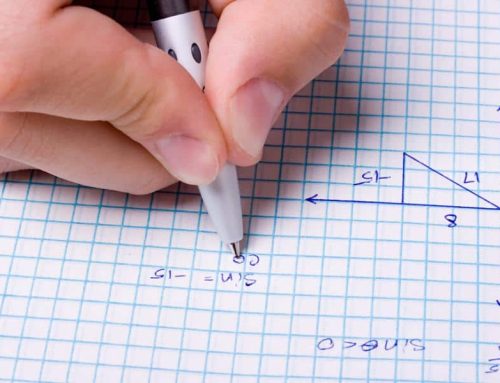Over 6 million US students are enrolled in online education, and thousands of higher education and K-2 schools use online proctored exams. Remote proctoring technologies take various forms, including a live proctor that observes a test taker via webcam, AI plagiarism-detection algorithms, webcam and microphone recording, remote desktop software, room scans, and more, all performed in your own home.
Sound intrusive? An invasion of privacy? We think so.
But are proctored math exams illegal? No. However, a 2022 ruling by a federal court deemed the use of room scans in university dormitories unconstitutional, violating the Fourth Amendment right to privacy.
The decision in Ogletree v. CSU is significant as it sets a legal precedent for future cases involving video room scans, online proctoring services, and online exams.
Online Proctoring Service Context
Proctoring services existed long before the Pandemic, but COVID-19 exacerbated its rise. As online courses and classes exploded worldwide in K-12 and higher education settings, so have proctoring software services. Faculty members engaged in remote teaching and digital learning look to remote proctoring companies to enforce online academic integrity.
Remote proctoring programs and companies include; Examity and ProctorU with live proctor services, automated services such as Proctortrack and Proctorio, and plagiarism-detection algorithms like Turnitin and Noplag.
What is an Online Proctored Math Exam?
Online proctored math exams are timed math exams administered online while the proctoring software or individual monitors the test takers’ computer desktop activity and record webcam, audio, and other measures before and during the exam to prevent cheating.
Remote proctoring, more generally, is a method of assessment that enables a test taker to complete various assessment forms, online exams, or tests from any distant location, more prevalent in the e-Learning landscape.
Online remote proctoring comes in many forms, such as:
- Live proctoring, where or observing a test taker via webcam, such as ProctorU
- Artificial intelligence and automated services like Proctortrack
- External webcam recording
- Desktop screen and microphone recording
- Eye-tracking software
- Remote desktop software
- Website plug-ins that allow an instructor to disable a student’s computer screen
- Plagiarism-detection algorithms, like Turnitin
- Conducting room scans
The 2022 ruling by a federal court specifically pertains to room scans and room scanning software.
Security Concerns for Online Proctoring
Many university administrators believe most students welcome and accept proctoring software as online exams and classes. However, proctoring software is rife with potential privacy and security nightmares and causes emotional distress for students.
 Some security and privacy concerns for online proctoring include:
Some security and privacy concerns for online proctoring include:
- Potential data breaches within the proctoring company
- Access, collection & use of personal information
- Sale of personal data to third parties
- Installation and removal of third-party software
- Limited vetting capabilities of live proctors
- Security vulnerabilities to test takers’ computers, including strangers’ remote access, vulnerabilities to professional hacking of the test takers’ computer
Before the 2022 federal court ruling, there have been various student protests against online class proctoring software. For example, in 2006, McLean High School in Virginia collected 1,190 signatures from students and parents against the school’s required use of Turnitin. And in 2015, a group of students petitioned against the mandated use of Proctortrack in some Rutgers online courses and collected over 900 signatures.
Further concerns include the proctor companies’ attitude toward personal data; for example, Examity’s privacy policy states that it may collect several personal details from test takers, including names, biometric records, driver’s license details, and passwords. Examity can use this data to analyze usage patterns and share them with third parties.
2022 Federal Court Case
Summary
The August 2022 ruling came after a University of Missouri student filed a lawsuit against his institution after being asked to complete a scan of his bedroom before a remote online proctored exam. The student alleged this violated his Fourth Amendment right.
The entire case revolved around whether these practices violated the Fourth Amendment right to privacy and, more broadly, questioned whether all remote proctoring practices violate all citizens’ privacy rights.
The Fourth Amendment of the United States Constitution states:
The right of the people to be secure in their persons, houses, papers, and effects, against unreasonable searches and seizures, shall not be violated, and no warrants shall issue, but upon probable cause, supported by oath or affirmation, and particularly describing the place to be searched, and the persons or things to be seized.
The court first determined that it amounted to a Fourth Amendment search and, second, ruled that the investigation was unreasonable without a warrant or probable cause.
Implications
The court’s decision has significant implications for universities and other public institutions that use proctoring software. While the ruling does not prohibit proctoring exam technology outright, it does set a legal precedent. It will likely make courts skeptical of public higher education institutions conducting room scans at home without a warrant or probable cause before searching.

Moreover, the ruling highlights the importance of privacy in online colleges, courses, and testing. It sends a clear message that students have the right to expect reasonable privacy, even in online education settings like online exams.
In addition, the ruling may have implications for other forms of proctoring software and features beyond room scanning. As such online testing and exam software becomes more widespread, courts will likely continue to weigh the balance between privacy rights and public safety concerns.
Conclusion
The federal court’s ruling on using room scans in university dormitories underscores the importance of privacy in public spaces. While institutions may have legitimate security concerns, they must balance those concerns against citizens’ fundamental rights to privacy.
The ruling sets a legal precedent for future surveillance technology cases and conveys that institutions must obtain a warrant or probable cause before conducting searches. As technology evolves, courts will continue to balance privacy and public safety, and citizens and students must remain vigilant in protecting their rights.
Why are Proctoring Services Problematic?
You only have to read various tweets from students about their experiences with remote proctoring software to understand this practice is a gross invasion of student privacy. Surveilling students in their homes and subjecting them to automated virtual scrutiny is transparently creepy, unfair, and harmful to students.
It exacerbates the problem that leads test-takers to resort to help to complete their online exams. Students are stressed out, and remote proctoring is making them do worse.
Other Student Concerns
While the Big Brother nature of these proctoring exams is concerning, it is noteworthy to incorporate other student concerns around these online exam features, including:
- Glitches in the software, including logging out students from exams
- Equity & accessibility concerns
- Stress and anxiety caused by scrutiny
- The stress and risk of grades caused by false lockouts from the exam
- The stress of downloading and enabling the software before taking the exam
- The stress of wrongfully being accused of cheating
Can you cheat on online math exams?
Cheating is possible on online exams, whether your final exam, tests, quizzes, or assessments, even in proctoring platforms like ProctorU and ProctorIO.
Here are six ways you can get help on online math exams, including:
1. Use of Forbidden Material
During the exam, test takers can use illegal materials such as scratch paper, formulas, cheat sheets, books, and sticky notes. Sometimes, students will not stick on their computer screens or write formulas using the erasable marker. This is possible even with live proctored exams.
2. Access to Questions Pre-Exam
This is common on standardized exams where students access answer sheets from students who already took the exam or if the exam occurs across time zones. In addition, some online math platforms have answer codes that students can access online or from previous students.
3. Pay Someone to Take your Exam
The most effective way to ensure you get excellent grades on your online math exam is to pay a professional to take your exam for you. Math exam help services can play methods to make online identities and create fake identity matching. Proctor checks an examinee’s ID via webcam are nearly impossible to authenticate virtually. Professionals can bypass the authentication mechanisms, even a biometric system.
Certain math exam help services are more credible and safer than others. The Finish My Math Class™ team can beat nearly every proctoring software. And significantly, our client’s security, privacy, and discretion are valued and upheld, next to guaranteeing students excellent grades.
4. Teamwork & Collaboration
Students can get assistance from collaborators, sneaking into the workspace out of the webcam’s field of view or communicating via phone during the exams. Private messaging apps are a common form of collaboration and are not always detected by the proctor via the webcam. Some students will use wireless earpieces for remote voice support during the math exam.
5. Using Virtual Machines (VM)
A Virtual Machine (VM) is a computer inside your computer. For instance, you can access your online math exam on your macOS and use the virtual machine in a Windows 11 to google/search anything.
6. Multiple Technology Devices/Monitors
You can use multiple hardware or a secondary monitor to answer the questions. Students can have the math exam on one monitor and use the other to answer questions. Different devices could include smart watches, laptops, computers, and smartphones to store notes and formulas.
Get Proctored Exam Help From Finish My Math Class™
Finish My Math Class™ has worked with hundreds of students who struggle with a math class that unfairly compromises future post-graduate study and careers. Our exam completion services are legitimate, and our team can beat nearly every single kind of proctoring software. We strive to give all students the best grades and help people finish their degrees. If you want a highly-rated math exam help service, please get in touch with us today for any math homework.



